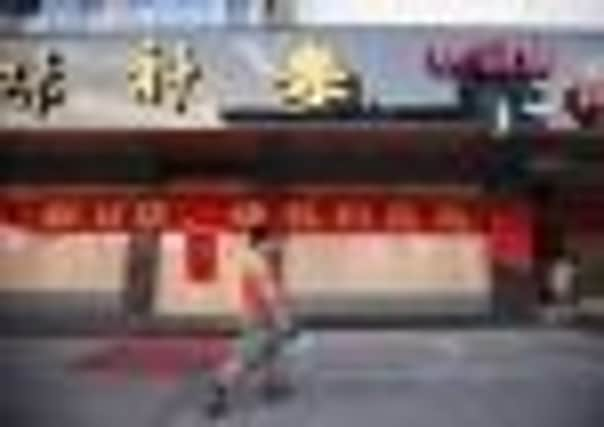Tensions rise as anti-Japan protests turn more violent


China’s worst outbreak of anti-Japan sentiment in decades led to demonstrations and violent attacks at the weekend on well-known Japanese businesses such as car makers Toyota and Honda, forcing frightened Japanese into hiding and prompting Chinese state media to warn that trade relations could now be in jeopardy. Chinese authorities threatened yesterday to arrest lawbreakers.
Tensions have been growing for months in the dispute over ownership of a string of uninhabited islands in the East China Sea called the Senkakus in Japan and Diaoyu in China. Things came to a head last week when the Japanese government said it was purchasing some of the islands from their private owner to thwart a Japanese politician’s plans to buy and develop them.
Advertisement
Hide AdAdvertisement
Hide AdChina reacted angrily, sending marine patrol ships inside Japanese-claimed waters around the islands, which Tokyo has administered since 1972. Some state media urged Chinese to show their patriotism by boycotting Japanese goods and cancelling travel to Japan.
Chinese foreign ministry spokesman Hong Lei said yesterday that the government would protect Japanese firms and citizens and called for protesters to obey the law.
But he added: “The gravely destructive consequences of Japan’s illegal purchase of the Diaoyu Islands are steadily emerging, and the responsibility for this should be born by Japan.”
Protests flared in cities across China over the weekend, with some violence, including the torching and looting of Japanese-invested factories and shops. They were the largest such demonstrations since 2005, reflecting ever-present anger toward Tokyo that periodically bursts to the surface.
China’s authoritarian government rarely allows protests and the wave of anti-Japanese demonstrations had clearly met privately with official approval. Authorities, however, are walking a tightrope between allowing citizens to vent their anger and losing control of the protests, which could then turn against the government.
Yesterday, authorities were clamping down.
In the western city of Xi’an, police issued an order banning large-scale protests in commercial areas, districts with large populations, and anywhere near government offices. The statement also warned that the use of mobile texting or online messaging to organise illegal demonstrations was forbidden.
In the southern city of Guangzhou, police said they arrested seven people for attacking cars and three more for vandalising shops.
Police in the eastern port city of Qingdao, where protesters torched a Panasonic factory and Toyota dealership, also reported arrests.
Advertisement
Hide AdAdvertisement
Hide AdAuthorities also tried to rein in online sentiment, with searches for posts or images related to the demonstrations met with an error message on China’s Twitter-like Sina Weibo micro-blogging site.
The tightened security followed demands from Japan that China ensure the safety of Japanese citizens and businesses. Japanese media have reported at least six incidents of Japanese citizens being attacked.